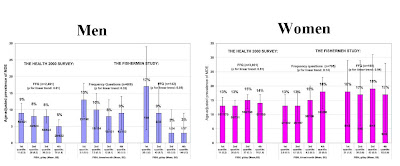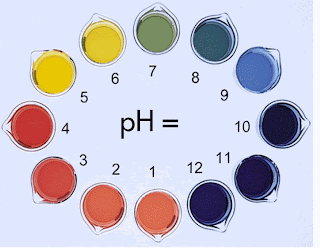According to a major new report from Australia, social and family factors associated with autism are associated with a lower risk of intellectual disability - and vice versa. But why?
The paper is from Leonard et al and it's published in PLoS ONE, so it's open access if you want to take a peek. The authors used a database system in the state of Western Australia which allowed them to find out what happened to all of the babies born between 1984 and 1999 who were still alive as of 2005. There were 400,000 of them.
The records included information on children diagnosed with either an autism spectrum disorder (ASD), intellectual disability aka mental retardation (ID), or both. They decided to only look at singleton births i.e. not twins or triplets.
In total, 1,179 of the kids had a diagnosis of ASD. That's 0.3% or about 1 in 350, much lower than more recent estimates, but these more recent studies used very different methods. Just over 60% of these also had ID, which corresponds well to previous estimates.
There were about 4,500 cases of ID without ASD in the sample, a rate of just over 1%; the great majority of these (90%) had mild-to-moderate ID. They excluded an additional 800 kids with ID associated with a "known biomedical condition" like Down's Syndrome.
So what did they find? Well, a whole bunch, and it's all interesting. Bullet point time.
- Between 1984 to 1999, rates of ID without ASD fell and rates of ASD rose, although there was a curious sudden fall in the rates of ASD without ID just before the end of the study. In 1984, "mild-moderate ID" without autism was by far the most common diagnosis, with 10 times the rate of anything else. By 1999, it was exactly level with ASD+ID, and ASD without ID was close behind. Here's the graph; note the logarithmic scale:

- Boys had a much higher rate of autism than girls, especially when it came to autism without ID. This has been known for a long time.
- Second- and third- born children had a higher rate of ID, and a lower rate of ASD, compared to firstborns.
- Older mothers had children with more autism - both autism with and without ID, but the trend was bigger for autism with ID. But they had less ID. For fathers, the trend was the same and the effect was even bigger. Older parents are more likely to have autistic children but less likely to have kids with ID.

- Richer parents had a strongly reduced liklihood of ID. Rates of ASD with ID were completely flat, but rates of ASD without ID were raised in the richer groups, though it was not linear (the middle groups were highest. - and effect was small.)
Why is this? The simplest explanation would be that there are many children out there for whom it's not easy to determine whether they have ASD or ID. Which diagnosis any such child gets would then depend on cultural and sociological factors - broadly speaking, whether clinicians are willing to give (and parents willing to accept) one or the other.
The authors note that autism has become a less stigmatized condition in Australia recently. Nowdays, they say, a diagnosis of ASD may be preferable to a diagnosis of "just" "plain old" ID, in terms of access to financial support amongst other things. However, it is also harder to get a diagnosis of ASD, as it requires you to go through a more extensive and complex series of assessments.
Clearly some parents will be better able to achieve this than others. In other countries, like South Korea, autism is still one of the most stigmatized conditions of childhood, and we'd expect that there, the trend would be reversed.
The authors also note the theory that autism rates are rising because of some kind of environmental toxin causing brain damage, like mercury or vaccinations. However, as they point out, this would probably cause more of all neurological/behavioural disorders, including ID; at the least it wouldn't reduce the rates of any.
These data clearly show that rates of ID fell almost exactly in parallel with rates of ASD rising, in Western Australia over this 15 year period. What will the vaccine-vexed folks over at Age of Autism make of this study, one wonders?


 10.46
10.46
 wsn
wsn

 Posted in
Posted in 




















